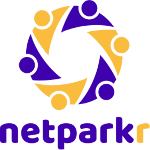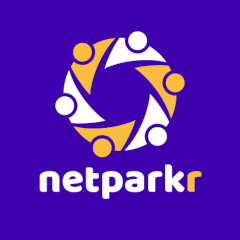Bright Data’s CEO, Or Lenchner, aims to make online data collecting the industry standard for all businesses. The business was founded in response to a market requirement for widespread open access to online data. The internet is the biggest, most complete database, and businesses must have comprehensive knowledge to make the best strategic decisions. Without public online data, businesses would only have a partial view.
The goal of Bright Data’s CEO, Or Lenchner, is to make online data collecting the industry standard for all businesses.
You have such a fascinating story to share—how did the idea to found a business that gathers data that is available to the public come about?
The business was started in response to a seemingly simple but actually highly complicated market requirement. We founded and run the extremely popular content unlocking/VPN service Hola in 2014, and it is still in use today. We were established as a result of major businesses approaching us with a goal to get widespread open access to online data in order to boost their competitive edge.
As you know, the internet is the biggest, most complete database there is, and it is where everything happens in real time. A business must have comprehensive knowledge to make the best strategic decisions if it wants to stay at the top of the market, even more so than it did in 2014. Without public online data, you would only have a partial view, which can steer you in the wrong direction. Public online data gives you the ability to know rather than rely on informed estimates, guaranteeing that you are moving in the right way to attract new customers or clients.
Tell us more about crawling and the gathering of open web data.
I’ll start by saying that the domain is changing at an even faster rate than it has in the past. Accessing publicly available web data, or data that can be accessed without signing in or registering on a website, is known as web data collecting or scraping.
Companies that gather this kind of online data for commercial or market research reasons routinely access enormous amounts of data, sometimes many times each day. I can attest that more than 10 times each day are collected by seven of the top ten e-commerce websites with which we cooperate. This is especially true when it comes to rival pricing data, which prompts them to continually change the costs of their goods in order to maintain their competitiveness in a market that is becoming more and more crowded.
This work would probably take hundreds or thousands of people to do manually, and even then it would take a very long time. This is the beauty of crawling and how smart it has gotten; with our automated data collecting technologies, a work that may take weeks can be performed in only a few minutes. Without skimming, there wouldn’t be unlimited competition, which would result in higher prices for the same goods and services for all customers than there are now.
It looks that you are greatly growing. Is it possible for you to provide us some numbers?
Yes, without a doubt. We have had tremendous growth over the previous four years, which have been quite exciting. According to data, in addition to working with the biggest e-commerce sites, we also cooperate with two of the top five American institutions. Additionally, we have reached 400 people and are rapidly growing. We said in 2021 that we had three new acquisitions and that our revenue had topped $100 million.
The data domain is currently unique compared to other domains. Since data is vital to the life of all businesses and our market, I like to say that it is the new water. Our most current statistics prove this.
What have been the biggest challenges to the business’ growth?
It might be challenging to make sure that all employees stay up with the company’s pace when a corporation grows so quickly. A significant amount of work must go into managing and training such a large workforce. We move swiftly and innovate even quicker as a firm that takes pride in predicting current and future data requirements, so sustaining this high tempo and hiring at the same rate is a huge challenge that we have had to overcome.
What is the Bright Initiative, according to our investigation into your company’s pro bono activities?
The Bright Initiative is a unique group and initiative that makes our company’s technology and years of knowledge freely available to academic institutions, nonprofit organizations, NGOs, global politicians, charities, and others.
The COVID-19 epidemic served as the catalyst for this group, which is currently quite active, to realize its severe need. We found that there was such a high demand for our online data platform that we created a nonprofit organization in response to it. Over 500 organizations are presently a part of the Bright Initiative. They include more than 170 institutions, 96 non-profits, NGOs, and government agencies, all of whom are dedicated to leveraging data from the public web to encourage positive change in the world. The company is presently run by former journalist Keren Pakes, and it has seven full-time employees that offer assistance, knowledge, training, and other services. For instance, we hold six educational sessions each month with participation from renowned academic institutions and nonprofit groups.
Our partners deal with urgent challenges like halting global warming and societal injustices like human trafficking. By supplying the essential public web data for evaluating, for example, national data skill sets, and by sharing our substantial knowledge in the data domain, we are also active participants in and supporters of the UK Government’s National Data Strategy (NDS). In the data sector, eight years is a considerable length of time.
There must be regulatory frameworks and laws in place for this sector because it seems so complicated.
No, not really. There is no practical structure that controls web data collecting, despite the statutory frameworks that GDPR and CCPA offer to handle data protection, which we are quite happy with. As a result, we are presently active participants in several committees and inquiries on the morality of AI and web data collection. As a company, we are self-regulatory, and we are proud of our open, compliance-focused processes and practices. This is a first for our sector, and I urge all other businesses and operators to follow in our footsteps.
It is obvious that having regulations in place really improves your ability to operate a firm and, most likely, to innovate. Customers seek reassurance that they are in the hands of reliable people. Every data supplier is required to keep this pledge since it is the only way that your data can be trusted.
For further information
You can visit BrightData or contact me on LinkedIn
We gather unique business case studies from all over the internet, to inspire you with a wide range of business ideas. This case study was supervised by our team and it definitely caught our interest. You can find other inspiring business stories here.







